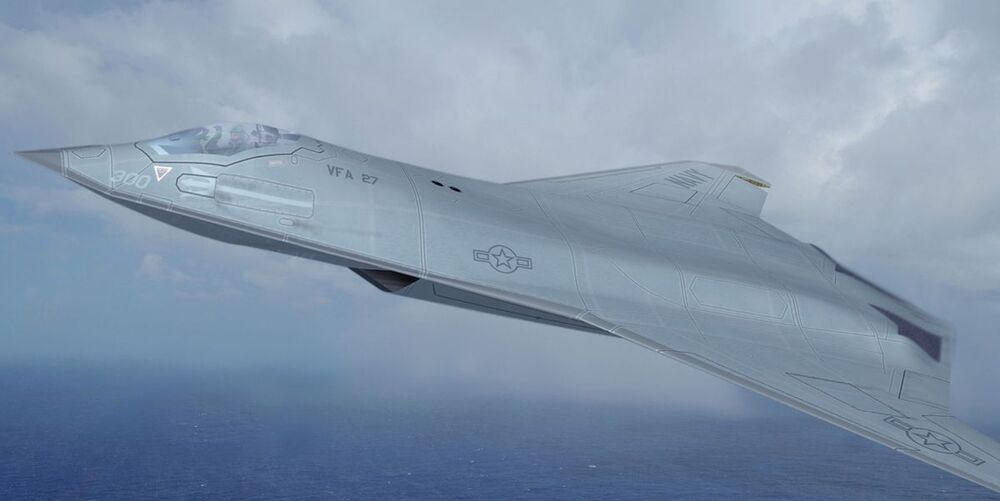NGAD is the Navy’s effort to replace the Super Hornet. Note: It’s a completely separate program from the Air Force’s own NGAD—which recently designed, tested, and flew a secret new fighter jet—and will produce a completely separate plane. The two aircraft will almost certainly be quite different, with the Air Force’s jet more optimized for air superiority. It’s likely the two fighters, developed roughly within the same time period, will share much of the same technology.
The U.S. Navy elaborated on its plans to replace the F/A-18E/F Super Hornet, saying the service’s next strike fighter will “most likely be manned.” The jet will probably fly alongside robotic allies, and remotely crewed aircraft could eventually account for six out of 10 planes on a carrier flight deck.
“As we look at it right now, the Next-Gen Air Dominance [NGAD] is a family of systems, which has as its centerpiece the F/A-XX—which may or may not be manned—platform. It’s the fixed-wing portion of the Next-Gen Air Dominance family of systems,” said Rear Adm. Gregory Harris, the head of the Chief of Naval Operations’ air warfare directorate, during a Navy League event.
The F/A-18E/F Super Hornet dominates Navy’s strike fighter fleet, made up of fighters that can execute both fighter and attack missions. Although the Navy is buying the F-35C Joint Strike Fighter, it’s only purchasing enough of the planes to replace one or two of the four strike fighter squadrons per deployed aircraft carrier. The Navy believes it needs to replace the Super Hornet and its electronic warfare variant, the EA-18G Growler, in the 2030s.
